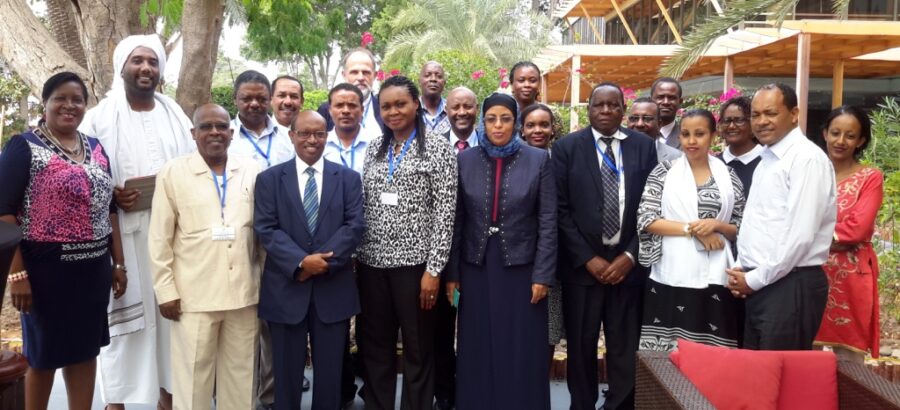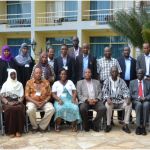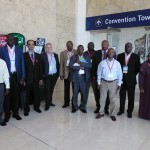Improving Land Governance in the IGAD Region, Project Progress Review and Planning Meeting
- Introduction
With support from the Switzerland Development Cooperation (SDC), the Intergovernmental Authority on Development (IGAD) and the Land Policy Initiative (LPI) are implementing a joint project to improve land governance in the IGAD Region. The aim of the project is to facilitate the implementation of the AU Declaration on Land Issues and Challenges in accordance with the Framework and Guidelines on Land Policy in Africa. This will enhance access to land and security of land rights for all land users in the IGAD region, especially vulnerable groups including pastoralists, women and youth. The objectives of the project are:
- Enhance the capacity of the LPI and the IGAD Secretariat to facilitate and monitor the implementation of the AU Declaration on land in the region,
- Mainstream land governance issues in programs and activities of the IGAD Secretariat and Member States
- Build capacity of academic institutions in the region to promote and undertake land policy related research,
- Establish a regional platform for knowledge sharing and advocacy aimed at promoting good land governance and land policy convergence among Member States,
- Improve partnerships, coordination and alignment of land governance related programs in the IGAD region, and
- Facilitate monitoring and evaluation of land policy reform processes.
- Objectives
The project planning retreat was intended to provide an opportunity to the participants to reflect on the progress of the project, share countries’ and regional economic communities’ experiences in implementing the AU declaration on land and discuss the revised 2016 workplan and budget to be approved by the Steering Committee. Specific objectives of the meeting were:
- Review the progress of the project
- Share country and RECs’ experiences in implementing the AU Declaration on land;
- Discuss and review the work plan of the year 2016
- Expected outcomes
- Progress of implementing the project shared
- Country experiences in implementing the AU Declaration on land shared; and
- Areas for building synergy and requiring support at country identified
- PROCEEDINGS
IGAD opening remarks were done by Mr Mohamed Moussa, Director of Agriculture and Environment, as well Dr Janet Edeme, Head of the Division of Agriculture and Rural Economy also addressed the meeting on behalf of the AU.
The following presentations were shared with the participants before they broke for group work to review the project work plans:
- Experiences of the countries in implementing the AU Declaration on Land (Kenya, Uganda and Ethiopia)
- project implementation progress review
- Overview from LPI on progress on implementation of AU Declaration on Land
- Draft work plan presentation
- KEY DISCUSSED AND SHARED POINTS
- Countries indicated that they are at varying stages of the land policy reform process.
- For example Uganda, Kenya, Ethiopia have land policies that have been developed in a participatory process
- Their land policies are addressing a number of land related challenges
- Have instruments and institutions that are governing the implementation of the land policies
- Some instruments are still under development or are to be reviewed
Among the challenges were:
- Financial and technical capacity limitations to achieve the aspirations set in the policy reform process
- Ensuring clarity of roles and responsibilities between and amongst the various actors and key institutions
- Creating champions to support the implementation of the policy reform process
- Registering of land to strengthen tenure security
The following best practices were shared:
- Mainstreaming of land governance in the constitution review process
- Participatory and consultative policy formulation processes
- Political interest and will to reform the policies
- Lobbying and advocacy to support policy reform processes
- Successful implementation requires by-in from all key actors
- Increased awareness and civic education on the policy reform process
- Ensure balancing the roles and responsibilities of all stakeholders at central, regional, district and community levels during implementation
Areas requiring support by the countries:
- Capacity building at all levels not only at high levels
- Financial and Technical support
- Putting farmers and agricultural production at the centre of the whole land policy reform process
- More awareness and civic education
- Sharing of research and study findings






